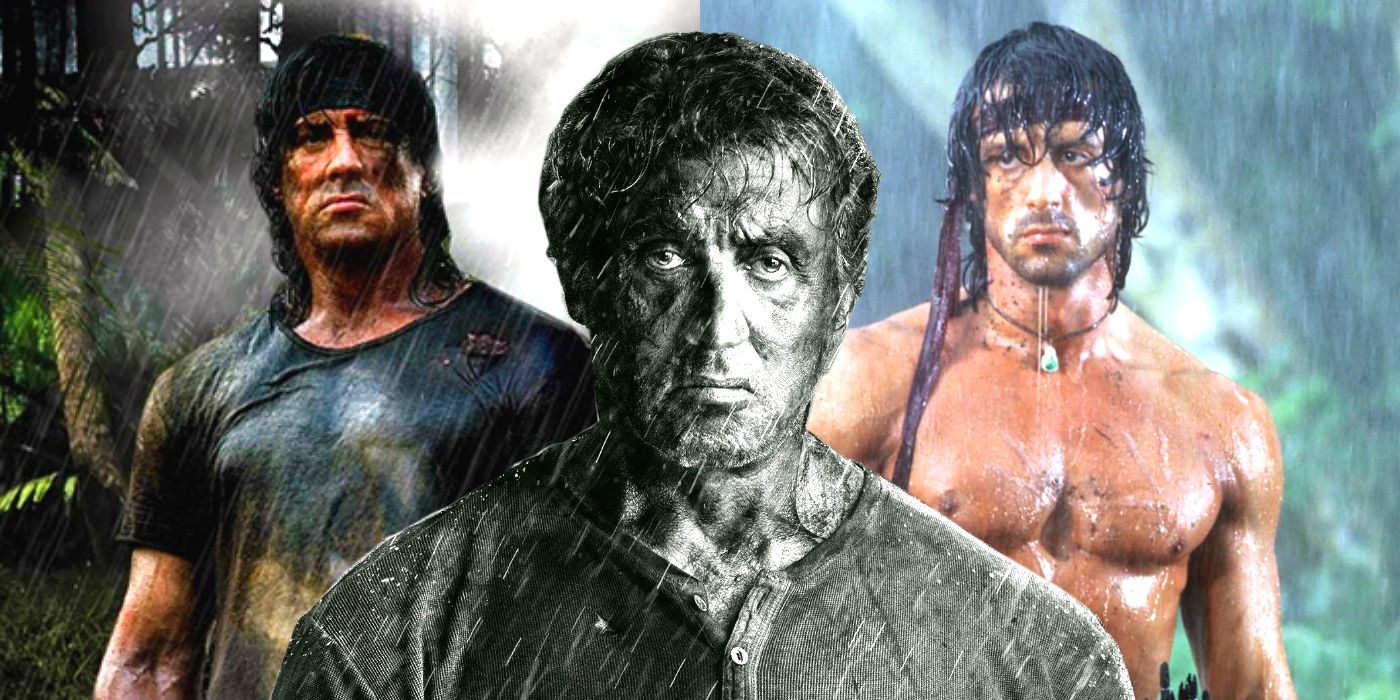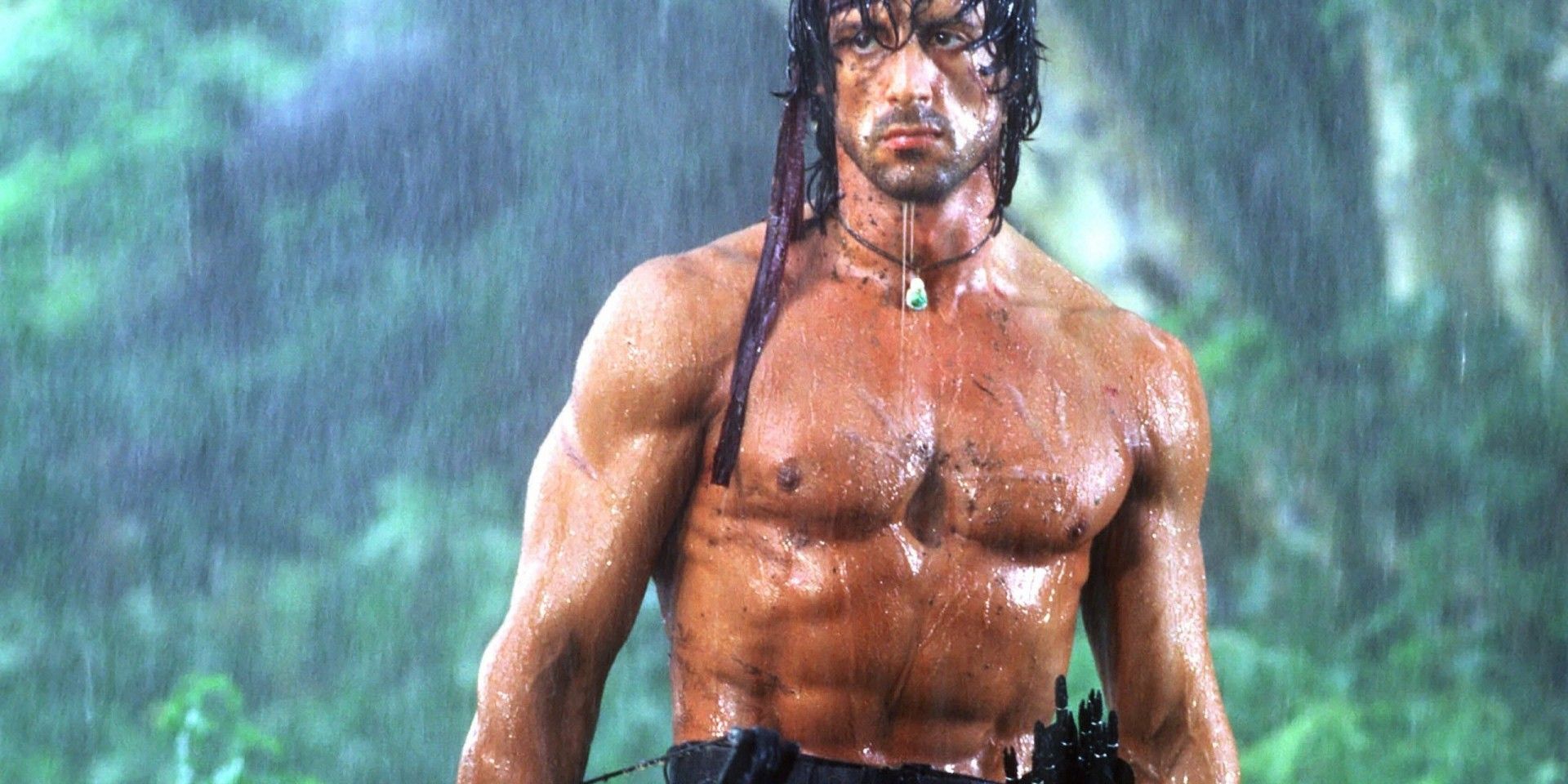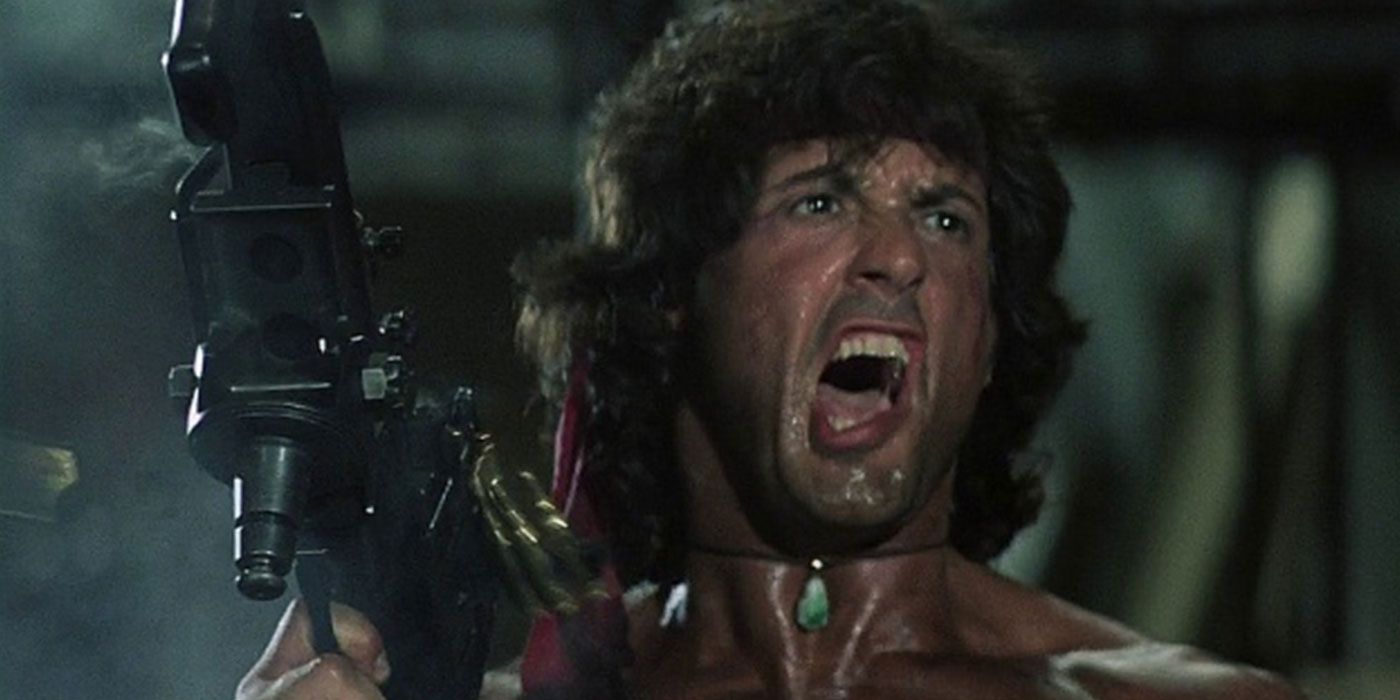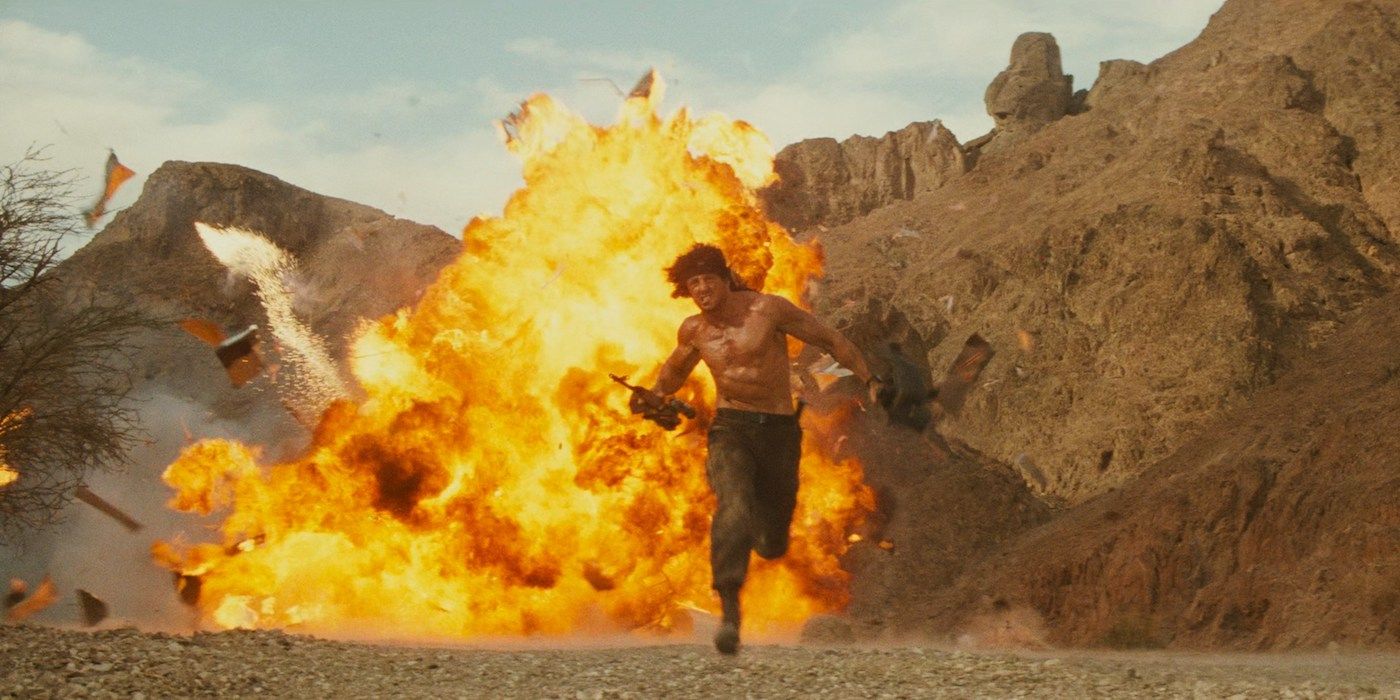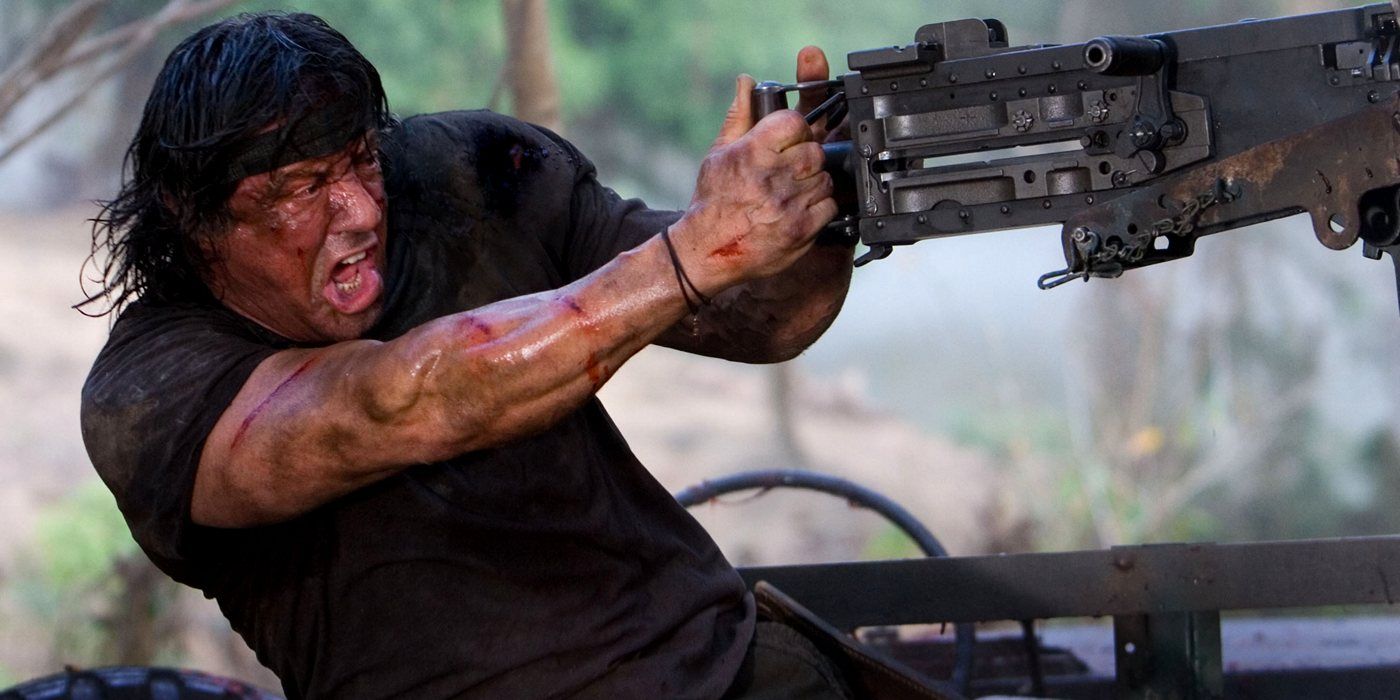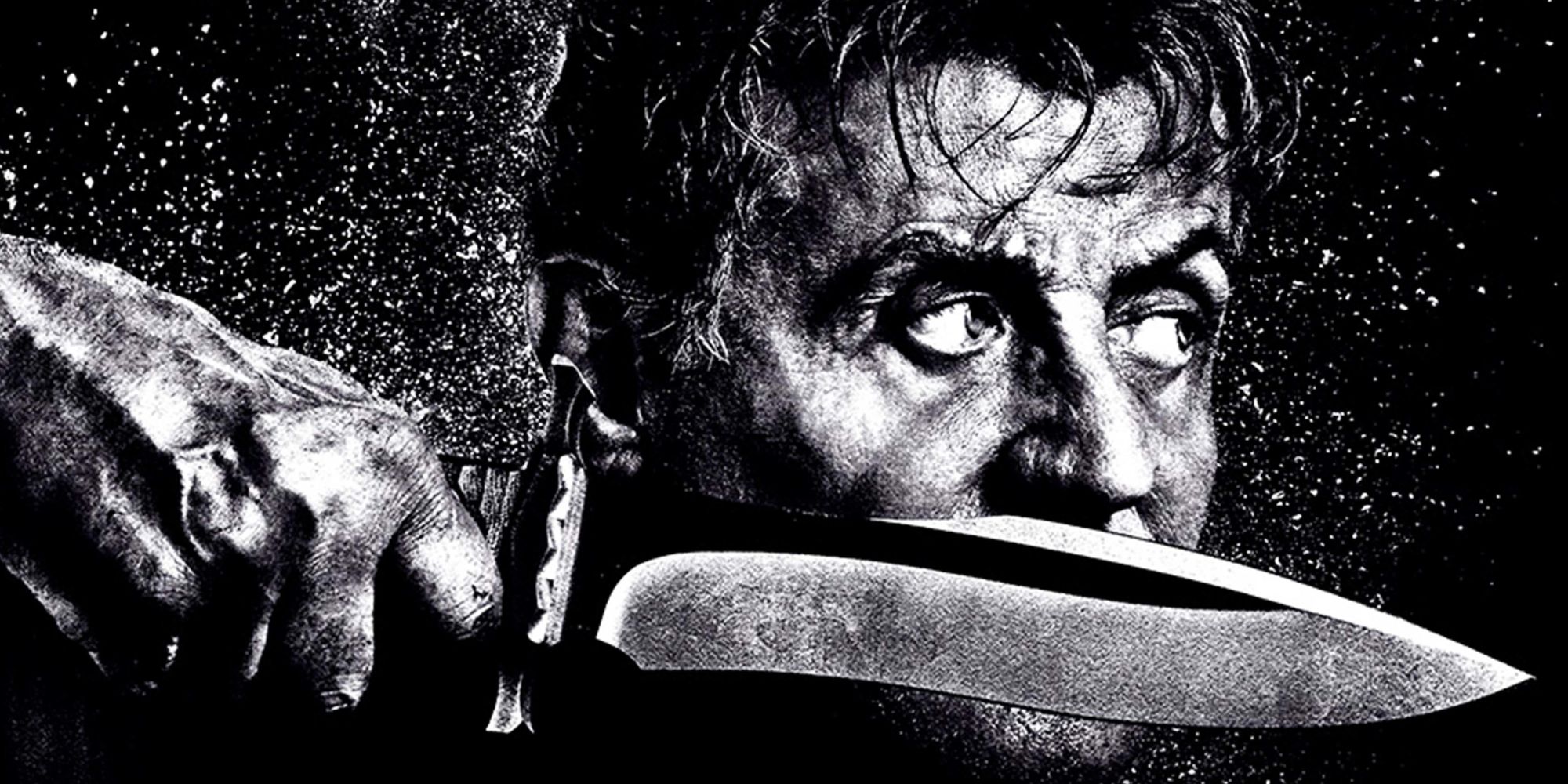Last Updated: November 18, 2019
All five Rambo movies have strong political themes about how veterans deserve to be treated and various conflicts around the world, but Rambo: Last Blood takes this to its logical conclusion. Beginning with 1982's First Blood, the Rambo film series is one of the most distinctly American franchises in cinema history. With Sylvester Stallone in the title role, John Rambo is a disenfranchised veteran of the Vietnam War who finds himself a stranger in his own country in the wake of that controversial and tragic conflict.
As the series progressed, the films evolved from a post-war drama to a flashy action series to a straight-up war movie. Through it all, Rambo has always been defined by its political awareness, leveraging the lingering sentiment regarding the Vietnam War to elevate the story and themes of the films. Despite Stallone's own insistence that Rambo is not intended to be a political statement, the movies speak for themselves, and they all have strong political themes, though not of the recent "right wing/left wing" dichotomy that overwhelms today's political discourse.
The latest film in the series, Rambo: Last Blood, continues this proud tradition, using the history of its iconic character to elevate an admittedly sparse plot. As Rambo: Last Blood brings the character's journey to a close, we take a look at the politics of the movies, and how it confirms him as America's Republican superhero.
First Blood
The film that started it all, First Blood is based on the 1972 novel by David Morrell. John Rambo is a PTSD-stricken Vietnam War veteran drifting across the country. Rambo finds himself bullied by the sheriff of a small mountain town, himself a veteran of the Korean War. Teasle mistakes Rambo for a hippie and winds up arresting the special forces specialist for vagrancy. After the sheriff's abusive deputies push Rambo too far, he has a Vietnam flashback and completely snaps, beating up his captors and escaping to the forest. Rambo and Teasle find themselves on a crash course, with Rambo unexpectedly rediscovering a righteous vigor and sense of purpose he had not felt since his Vietnam days.
At the end of First Blood, Rambo is confronted by his old mentor, Colonel Sam Trautman, who tries to get his pupil to lay down his weapons and surrender to the authorities. In response, Rambo delivers an epic monologue, one of the most famous of Stallone's career. "Back there, I could fly a gunship. I could drive a tank... Back here, I can't even hold a job parking cars." His heartbreaking speech is meant to be representative of the broad experiences of many Vietnam veterans, who endured unspeakable loss and killed for their country in those napalm-soaked jungles. Like Rambo, they lost something in Vietnam that they would never get back once they returned to the vapid normalcy of regular life.
Rambo: First Blood Part II
During the Vietnam War, American soldiers were captured by the North Vietnamese Army. These prisoners of war, or POWs, were tortured by their captors, and the treatment of POWs remains a controversial subject to this day. As shown in First Blood, Rambo himself was a POW and subjected to horrific torture at the hands of the NVA.
The plot of Rambo: First Blood Part II revolves around a prolific Vietnam rumor, that American POWs remained imprisoned by the military, their existence too controversial to be acknowledged by America, dirty reminders of a war the country was trying to forget. In the movie, Rambo is offered a pardon for his rampage in First Blood in exchange for embarking on a solo infiltration mission to confirm the existence of POWs in Vietnam. However, Rambo is betrayed by the mission leader, Murdock, who reveals that he nor the United States government have any intention of rescuing the missing soldiers. Naturally, Rambo goes on another rogue rampaging, cursing the country that continues to betray him at every turn despite his own patriotic loyalty.
First Blood Part 2 is definitely more of a straight action film with some political elements than a post-war drama like the original film. Nevertheless, it's capped with anther rousing speech from Stallone, in which he plainly states Rambo's mission statement: to be loved by his country as much he loves it. It's a sentiment shared by many veterans, who arguably gave more to their country than they ever got back in return.
Rambo III
The third film in the series, Rambo III, moves the action to Soviet-occupied Afghanistan. Rambo's old friend, Sam Trautman, asks for help on a low-key mission, bringing aid to the Mujahideen rebels fighting against the Russian invaders. Rambo refuses, since he's done fighting. However, when Trautman is captured by the Russians and his team is killed, Rambo has no choice but to return to battle in an effort to rescue his friend.
Rambo 3 was already political, being based on the real-life conflict between Russia and Afghanistan. In one memorable scene, Trautman even refers to the war as the Russian's equivalent to America's war in Vietnam. However, the film is significantly more political in hindsight, since the Mujahideen would evolve in the years following Soviet expulsion from their country. This is an oversimplification, but the Mujahideen essentially evolved into what is now known as the Taliban, and their allied faction, Al-Qaeda, was directly responsible for the terrorist attacks on September 11, 2001. Needless to say, we're glad the original ending to Rambo III, which saw Rambo joining the Mujahideen struggle against the Russians, was scrapped.
Rambo
Twenty years after Rambo III, the character was brought back for another war in 2008's revival, simply-titled Rambo. The film is extremely overt in global politics, being squarely focused on the conflict in Burma, now known as Myanmar. The military government of the country ruled with an iron fist, committing numerous human rights violations in the process. The real life history of the region is worth reading up on, as are the current failings of the current ruling faction. Hopefully, the immediate future will see the people of Myanmar overcome their differences and birth a new spirit of patriotism, united under a common, democratic goal.
John Rambo, living near the border in Thailand, finds himself drawn into the conflict when he begrudgingly agrees to escort some Christian missionaries into a nearby Karen settlement on a humanitarian aid mission. However, when the village is massacred and the missionaries are captured by the military, Rambo must lead a group of mercenaries into one of the most disturbingly violent battles ever captured on film.
Rambo is bitter and jaded by this time in his life. He's turned his back on his country, and ekes out a meager existence for himself on his own terms. At the end of the movie, he looks at the carnage he's wreaked and the people he's saved. At last, he decides it's finally time to go home. The film ends with a beautiful long shot of John walking down the long road towards his family's farm in Arizona.
Rambo: Last Blood
The latest, and possibly final, film in the series is Rambo: Last Blood. Picking up a decade after the last film, Rambo is retired and living with an adopted family in his old family farm in Arizona, near the Mexican border. Obviously, the political situation in the region is particularly heated in 2019, but Last Blood isn't the "right wing propaganda" some were fearing it would be. While the movie does deal with Rambo taking on a Mexican gang, Rambo's adopted family are Mexican immigrants, and the Mexican gang aren't defined by their Latino heritage. The movie could be set pretty much anywhere and have the same story; it's just a backdrop for the narrative. By his nature, Rambo is a character who always finds himself dealing with the worst of any region he enters; just because he fought violently abusive cops and foolhardy national guard troops in First Blood doesn't mean the film believes all cops are evil and all national guardsmen are dopey weekend soldiers.
The closest Rambo: Last Blood comes to making an implied political statement has to do with the numerous border crossing scenes in the film. First, a character is seen crossing through a regular checkpoint. Later, Rambo is seen crossing by driving his car through a thin border fence, knocking the barrier aside with ease. The villains are seen crossing through an underground tunnel. This can be seen, if the viewer so chooses, as an indictment of Trump's proposed border wall; it would have done nothing to deter the villains who crossed underneath, but it would have hindered Rambo, who likely would not have been able to drive his truck through such a structure.
Unfortunately, it looks like Rambo: Last Blood's particular brand of politics might not have played in its favor, as Sly Stallone's possibly last hurrah as John Rambo bombed at the box office, coming in second on the domestic chart to the Downton Abbey movie. Reviews from critics were also harshly unkind, although the reviews for Rambo (2008) weren't exactly great either. Made on a budget of $50 million, Rambo: Last Blood earned only $87 million worldwide, not even enough to break even after marketing costs, and when considering that studios don't get all the profits from ticket sales.
While the entire series has always been focused on the main character and his worldview, Rambo: Last Blood is the most personal John Rambo story since the original. Rambo makes note of his post traumatic stress, and how he makes a concerted effort to "keep a lid on it every day." When his family is endangered, the viewer gets to see exactly what Rambo is still capable of, even in his 70s. While Rambo: Last Blood isn't as good as it could've been, it still makes its point: Rambo never forgot the skills he learned in Vietnam, and never shed the demons that followed him home all those years ago.

